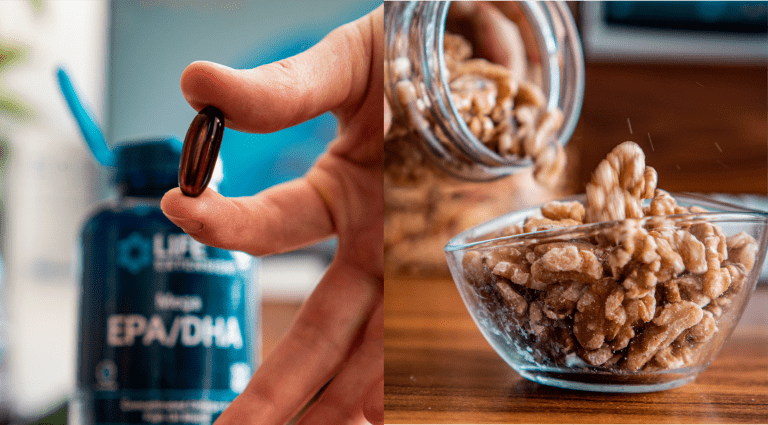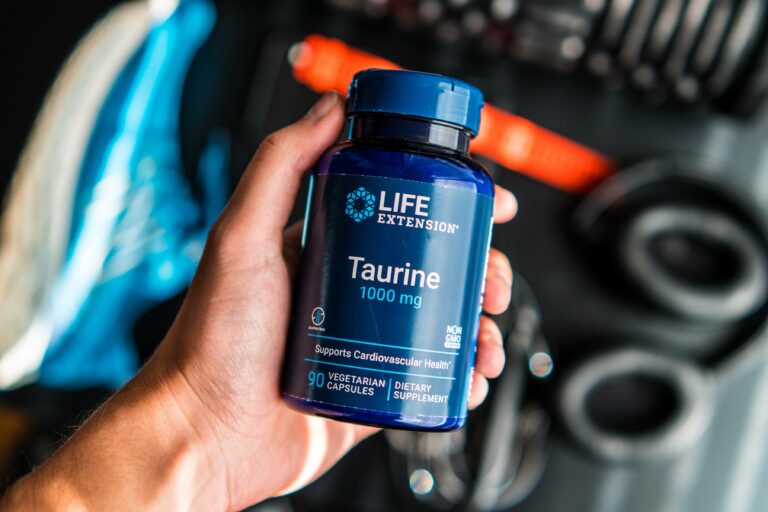Is Chewing Gum Good? 6 Ways It May Improve Health
Have you ever thought, is chewing gum good? Chewing gum can be a surprisingly good biohack to boost your performance, as cheesy as it sounds. But before you pop a lot of gums, wait a bit. Chewing gum benefits don’t come from a sugar-loaded gum, but a functional one. Surprised? Keep on reading, you might find out much new stuff about chewing.
How can chewing gum improve my health?
Along many potential benefits of chewing gum, one stands out. Chewing gum can boost your cognition, sharpen your focus and improve alertness. No wonder Michael Jordan was chewing gum all the time (which we don’t recommend during games).
Chewing gum may also protect your teeth and kill mouth bacteria if you use the right kind. It may also reduce nausea and acid reflux, reduce anxiety and depression symptoms and even fight fatigue. Seems pretty impressive, for a gum aye?
What is Chewing Gum made of?
Chewing gum was primarily made from the sap of trees like Manilkara chicle or spruce. The gums we chew today contain a gum base that is composed of elastomers, emulsifiers, fillers, resins, waxes, etc.
Contrary to what many believe, it isn’t made from whale or pig fat. It can contain gelatin though. On top of that, there are some other artificial sweeteners, color agents, and antioxidants in gum. If you want to chew gum for more than “a fresh breath”, and improve your health, you might want to pick your gum more carefully.
The Long Use of Chewing Gum
Chewing gum has a long history of use, supported by lots of chewers. Who thought of this? Have you ever chewed on something in nature? Most certainly, I have chewed on grass, wheat, and trees. There you go, but I promise, It wasn’t me.
Why is chewing gum a powerful biohack?
Because it uses the ancient act of mastication, which is simple but very powerful as it links to better cognitive performance, memory, and focus. On the other hand, what’s so biohacking-friendly about chewing gum, is picking yourself a functional gum with ashwagandha, elderberry, vitamin D, C, and other compounds that can improve your performance and health.
Which chewing gum is best for teeth?
Xylitol enriched gum. Xylitol is an effective compound, a polyalcohol used in many kinds of toothpaste and mouthwashes. It fights dental plaque, reduces the development of caries, and kills bad bacteria in your mouth.
Can chewing gum break a fast?
Depends on the sugar level. Generally, gums that are sugar-free or sugarless won’t provide significant carbs or sugar to break a fast.
Sugar Gum vs. Xylitol Gum
Picking a sugar-packed gum with tons of artificial sweeteners is obviously not the way to go. Sugars are one of the most important factors that contribute to dental caries. (1) If you chew gum that’s 20 minutes in your mouth, you do the math (although sugar is squeezed out, you’ll still be juggling sugar in your mouth). Sugary gum disrupts bacteria in your mouth and can lead to poor dental health.
On the other side, we have Xylitol Gum, a much better alternative. Xylitol is present in vegetables, fruits and is extracted from birch wood. It is the king for making “sugar-free” gum, that also has some benefits for our oral health.
Xylitol has been used in mouthwash, toothpaste, and chewing gums. It is effective in reducing dental plaque growth and it reduces bad bacteria in your mouth. (2)

6 Ways Chewing Gum May Improve Your Health
Now that you know Xylitol gum is a better way to protect your mouth, let’s see what other benefits can the act of chewing promote. Before you go on this scientific journey, take a moment to think of how chewing gum feels to you. Does it help you focus, do you think the fat-burning thing is a myth or true, and how about fighting fatigue and reducing anxiety? We’ll clear it all out here.
1. Improves Alertness and Focus
It seems tricky to say that such a simple act improves performance, but science is on our side. Chewing gum can wake us up, signal our brains it’s time to work, beat fatigue and increase alertness.
Taking a look at 4 different studies, this review shows that chewing gum was associated with better productivity and cognitive performance. It allowed participants to perform work better, raised cortisol levels in the morning, and increased alertness too. It sort of fights fatigue, and promotes alertness, getting our brains ready to do the work. (3)
- Chewing gum improved students’ attention and focus, who had weaker results without chewing gum. (4)
- Chewing gum can even improve performance on intelligence tests. It was effective in improving the accuracy of the Alice Heim test, with a 10% increase in alertness. (5)
2. Reduces Stress and Anxiety
Chewing gum may increase glucose metabolism, which can reduce cortisol levels (a stress hormone). Chewing gum may also affect how we process external stressors to inhibit stressing information on the brain or help us deal with that stress better. (6)
Can increasing focus reduce stress or anxiety? There’s another loop here.
They took 100 students for 7 or 19 days and tested their stress, depression, and anxiety. It seems like pre-test measures were weaker, which suggests chewing gum improved all the measures, also increasing focus. (7)
Another research shows chewing gum can reduce perceived stress in students. (8) It may help us beat off some of that exam stress and focus, sounds good right?
Anxiety and stress are very related. Under bigger stressors, from physiological to psychological, anxiety increases too. It’s a loop, because as anxiety increases, it presents mental stress, increasing stress even more.
3. Protects your Teeth, Improves Oral Health
Sugar-packed gums are an absolute weak point for your oral health. But chewing an antioxidant-rich, xylitol-sweetened gum may be pretty beneficial. Think of it, why is xylitol used in toothpaste and mouthwashes, right?
First of all, proper mouth hygiene needs to take place, This means washing your teeth 2 times per day, flossing, using mouthwash, etc. But can chewing gum be a step up, offering additional benefits?
Yes. Chewing gum increases saliva flow which can wash off debris and plaque from your teeth. It neutralizes pH value in the mouth and speeds up sugar clearance from your teeth. (9)
- In another analysis, some articles showed that chewing sugar-free gum leads to reducing caries development. (10)
- Chewing xylitol gum can reduce plaque better, compared with sorbitol, another sweetener. (11)
- However, in younger adults with low caries experience, xylitol might not have a significant effect on reducing plaque and bacteria deposits on the teeth. (12)
4. Relieves Nausea and Heartburn Symptoms
Heartburn and nausea are very related, both are signaling your brain you’d want to vomit as the stomach acid is traveling up, commonly caused by acid reflux. Heartburn feels like burning chest pain and nausea feels like tightness, stomach pain, and dizziness.
According to WebMD, chewing gum may prevent acid reflux by reducing acid levels in the esophagus.
Chewing gum speeds up the rate at which we swallow since more saliva is present. This helps us clear more mouth acid, and potentially reduce acid in the esophagus after a meal. (13)
Chewing gum can also reduce vomiting and nausea after surgery, having similar effectiveness in patients, compared to the postanesthesia care unit. (14)
5. Burns Extra Calories, Aids in Weight Loss
This is probably the most controversial benefit of chewing gum. Some say it’s a myth, and some say it isn’t significant, but let’s see what science has to say.
Chewing gum can effectively fight sugar cravings, and may promote satiety, or reduce hunger cravings. Chewing gum reduced snacking by 10%, as well as suppressed hunger and appetite. (15)
Research shows that chewing gum may:
- increase energy expenditure, meaning you may burn more calories by chewing (16)
- enhance diet-induced thermogenesis (slow-eating, more chewing), gum-chewers had superior results. (17)
- enhance fat oxidation while walking, by improving distance and walking speed. (18)
If that wasn’t enough, let’s look at afternoon snacking, one of the major problems in obese individuals.
A study took a look at 25 obese and 25 non-obese individuals (women) who chewed gum 15 minutes per hour, 3x daily. This led to suppressed hunger, a reduction of snacking by 9.3%, and a reduction in carbohydrate consumption. (19)
To conclude, we don’t think calorie burning is the main mechanism behind chewing gum’s main weight loss effects. Stimulation of a hunger-controlling peptide GLP-1 seems superior for promoting satiety, which then aids in weight loss.
6. May Improve Short-Term or Spatial Memory
The mechanism behind memory improvement by chewing might be very simple. By improving your focus, you can technically soak in more information, better. Chewing also improves blood flow which may promote better brain nourishment (oxygen and nutrients).
The act of chewing itself can support or maintain hippocampus function, which is a major region of the brain involved in learning and spatial memory. In elderly people, the inability to chew is associated with poor memory scores. There might be a powerful link between mastication (chewing) and hippocampal function, brain performance, and cognition. (20) (21)
- Another study failed to find a powerful link between chewing gum and memory improvements, but the focus and alertness benefits were still there. (22)
- According to ScienceDirect, there is a stronger link between the act of chewing and memory improvement in elderly adults or those with an aged or stressed brain.
This means it might not significantly improve memory in young healthy adults, but it may be useful for the elderly population.
However, there is a link between stress, memory, and focus. If mastication is linked to hippocampus function (memory), it can improve focus and alertness while reducing stress, theoretically, this may help us also memorize more.
In adults aged 45-70, chewing mint gum free of sugars for 10 minutes 3 times daily, over a 3-month period showed improvement in recognition memory. (23)
How to Choose A Better Gum?
It’s not all about flavor, color, or bubble-creation capabilities. The gum you choose to chew should be sugar-free, antioxidant-rich, have natural sweeteners like xylitol, and help you fight bad mouth bacteria. Choosing the basic gum that’s better for your teeth will be outlined here, if you want to step up, go to the next section of functional gum, where the real biohacking takes place.
Here are some steps in choosing healthier gum:
- sugarless or sugar-free
- gum with xylitol, a powerful compound
- avoid BHT, corn syrup, and titanium dioxide
- gum with casein or probiotics
- natural sweeteners like raw cane sugar, dehydrated citrus peels, peppermint oil, or stevia

Functional Gum: Biohack Your Chewing With The Healthiest Gum
If you really want to do the step-up, functional gum is the way to go. Functional gum refers to chewing gum that is enriched with healthy compounds like vitamins, minerals, or even other nutritious components from extracts of mushrooms or herbs that are believed to boost your health and performance.
The two best brands for functional gum are
- Goli Nutrition – offers many different types of gummies from superfruit, apple cider vinegar, ashwagandha, and super greens.
- Mighty Gum – one of the best immunity gums with ashwagandha, astragalus, elderberry, reishi mushroom, and 6 vitamins.
conclusion
Chewing gum is a very simple yet powerful act that has numerous benefits for our bodies. The act of mastication can improve cognitive performance, relieve nausea and acid reflux, increase energy expenditure, aid in weight loss, and increase focus and alertness. Choosing xylitol sugar-free gum is the key to oral health, as it fights dental plaque, reduces caries development, and kills bad bacteria. Biohackers may choose to step up their gum game by picking functional gums, rich in antioxidants, vitamins, herbs, or mushroom compounds beneficial for health and performance.
Frequently Asked Questions
Can chewing gum cause acid reflux?
Chewing gum can reduce acid reflux as it helps reduce mouth acid with saliva flow, plus it increases pH levels in the esophagus, potentially preventing acid reflux.
Can chewing gum make you lose weight?
Weirdly enough, Yes. Chewing gum comes with potential weight loss effects, mainly caused by promoting satiety due to GLP-1 increase, a hunger-controlling peptide. Partially, chewing gum helps you increase energy expenditure and burn calories.
Which chewing gum is good for health?
Chewing gum that is free from sugar and artificial sweeteners. Gum with xylitol is known to improve oral health, and other gums that add vitamins, minerals, and other healthy compounds are a better alternative.
Why is chewing gum good for you?
Chewing gum can improve cognitive performance by acutely boosting focus and alertness. The act of mastication is also linked to better memory, and chewing itself helps us burn calories. If you pick a healthy xylitol gum, your oral health can be improved too, as a side effect as xylitol fights dental plaque and bad bacteria. Chewing gum increases salivary flow and reduces esophagus acid, which may help reduce acid reflux symptoms.








